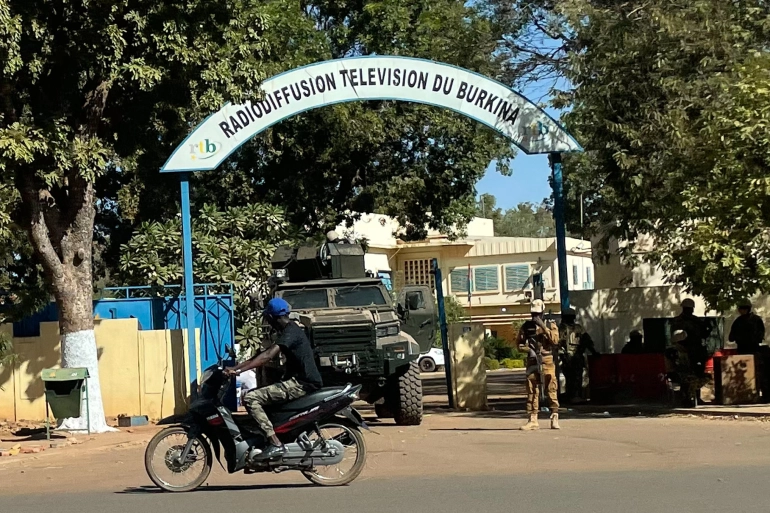
Soldiers are on the streets and heavy gunfire has been heard near the main military camp and residential areas of Burkina Faso’s capital.
A large blast also rang out on Friday near the presidential palace where soldiers took up positions.
Soldiers were seen along the main avenue leading to the presidential palace, administrative buildings and the national television station, which stopped broadcasting. Journalists said state television instead showed a blank screen saying “no video signal”.
Several main roads in Ouagadougou were blocked by troops.
The whereabouts of coup leader-turned president Lt. Col. Paul Henri Sandaogo Damiba were not immediately known but a statement from his government on Facebook urged people to remain calm.
“Negotiations are underway to bring back calm and serenity,” said the statement attributed to the presidency spokesman. “The enemy attacking our country only wants division between Burkinabes.”
The uncertainty carried on into the late afternoon as the West African nation’s residents awaited word on who was in control of the country destabilised by a growing insurgency.
The development bore the hallmarks of other power grabs that have swept across West and Central Africa over the past two years.
No public announcement about the motivation behind the troop movements in Ouagadougou was given.
“This smacks of a coup attempt,” said Eric Humphery-Smith, senior Africa analyst at risk intelligence company Verisk Maplecroft. “While gunfire around military barracks could be due to some form of mutiny, the closure of the national television station bodes ill.”
Burkina Faso has become the epicentre of regional violence that began in neighbouring Mali in 2012 but which has since spread across the expanse of the Sahel region south of the Sahara Desert.
More than 40 percent of Burkina Faso, a former French colony, is now outside government control. In recent years, violence by armed groups has spilled over into the Ivory Coast and Togo.
Ornella Moderan, a Sahel security analyst, said a lot of rumours were flowing on social media amid the confusion of what is happening in the country.
“There has been mounting tensions among the society and the military, but it’s way too early to tell what is going on,” Moderan told Al Jazeera. “The situation is extremely complex. Burkina Faso is not confronting a security situation on its own, it’s affecting the whole region.”
Reporting from Saint Louis in Senegal in West Africa, Al Jazeera’s Nicolas Haque said there was a sense of panic across the capital.
“All the streets leading to the presidential palace, the parliament, and the constitutional court are being manned by soldiers. People who have tried to approach these areas have been told to return and move away,” he said.





















